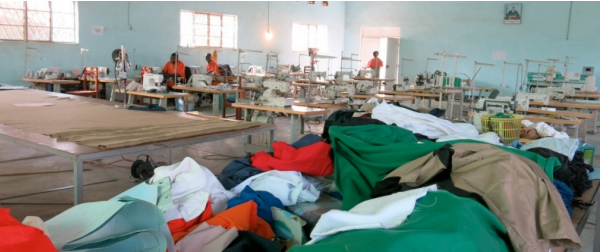Mining Local, Sourcing Local: Why companies that take proactive steps to utilize local suppliers will have the edge
Expectations have never been higher for what and how mining activity should contribute to the communities and countries that host it. From Canada’s far north to Sub-Saharan Africa, citizens who live around mining operations want to see benefits in the form of jobs, tax revenue, and economic development.
One of the most effective means that mining companies can utilize to spread the economic benefits of mining activity is to increase the amount of local goods and services they purchase.
The reality is that mining operations won’t be able to contribute to meaningful economic and social development if they exist as enclaves disconnected from the rest of the countries in which they operate. If companies only purchase goods and services from international firms, bypassing local business networks, they will miss out on a valuable opportunity to contribute to local development.
Instead, if mining companies take proactive steps to utilize local suppliers, they will create jobs and raise household incomes, improve skills and access to technology, and help create vital domestic business networks.
It is because of these benefits that increasing backwards supply chain linkages to domestic economies figures prominently in the African Mining Vision, adopted by African heads of state in 2009. Local procurement around natural resource extraction has also been part of development strategies implemented by the World Bank, as well as participation agreements between mining companies and Aboriginal communities in Canada.
Increasing local procurement is also good for mining companies. In the long run, supply chain costs are reduced and delivery times shortened. More importantly, in light of the growing pressure on mining companies to create benefits for citizens, local spending helps companies secure their social license to operate.
There are strong signals that the Canadian mining industry is recognizing the benefits of increased local procurement for their own operations, but more importantly for their host economies.
In a study released recently by the Mining Shared Value Venture, Engineers Without Borders Canada found that Canadian mining companies are increasingly reporting their local procurement. From 2011 to 2012, the number of the 50 largest Canadian mining companies reporting an official local procurement policy tripled, from 4 to 12.
 Engineers Without Borders also found that the number of companies providing statistics on local procurement and the number that describing programs being implemented to increase local procurement increased by 25 percent.
Engineers Without Borders also found that the number of companies providing statistics on local procurement and the number that describing programs being implemented to increase local procurement increased by 25 percent.
A uniform factory in the Democratic Republic of Congo. (Image credit: Engineers Without Borders.)
One example of a program increasing local spending called out in the study is that of Sherritt, the largest partner in the Ambatovy joint venture nickel operation in Madagascar. Sherritt created the Ambatovy Local Business Initiative (ALBI) that includes supplier summits, audits, and training centres for local businesses. Due to these efforts, the Ambatovy mining operation has created the means to buy products like uniforms and shipping pallets from the local community. These purchases have led to increased employment and invaluable skills-building for the domestic economy.
The initiative shows that local procurement can be increased even in very challenging jurisdictions. If a company can source uniforms in Madagascar — one of the least developed countries on earth, and a country undergoing political turmoil — mining companies should be able to develop strategies to locally source supplies and services in many more countries than we’re seeing today.
Despite these promising evolutions, there is still a great deal of work to be done. The majority of Canadian companies, let alone most mining multinationals, do not have systems in place to track the proportion of their spending that goes to local suppliers. EWB also found that only a handful of companies include increasing local procurement as a yearly strategic CSR objective.
It’s time for mining companies to embrace this opportunity to improve the development impacts of mining through an increase in local procurement. This will be good for both the countries that host mining operations, and for an industry feeling the pressure to show the benefits they produce for citizens.
Jeff Geipel is the venture leader for Engineers Without Borders Canada’s Mining Shared Value venture.
This post previously appeared on the Building Markets blog and is reposted with permission. Building Markets recently hosted a panel at the Prospectors and Developers Association of Canada conference with Engineers Without Borders, and is running a blog series about buying local as a means to ending poverty.
- Categories
- Uncategorized
- Tags
- mining, supply chains
